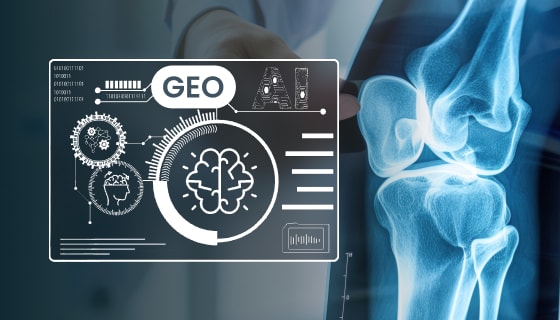Introduction
The Future of Digital Marketing for business is unfolding rapidly in today’s fast-paced world. Businesses must anticipate and adapt to upcoming trends to stay ahead. This article deeply examines the trends, technologies, and challenges that will define its trajectory.
As we navigate through emerging technologies, artificial intelligence, personalized experiences, and evolving consumer behaviors, it becomes imperative for organizations to not only embrace these changes but also to innovate and lead in the digital space. This exploration of the future of Internet Marketing serves as a roadmap, empowering businesses to make informed decisions and strategically position themselves for success in the dynamic and exciting times ahead.
The Online Marketing landscape has come a long way from its humble beginnings. This section will provide an overview of what it entails and its significance in the modern business world.
Decoding The World Of Digital Marketing
The Digital Marketing Landscape
Digital marketing, the bedrock of modern business strategies, is set to transform with the Future of Digital Marketing.
Leveraging tools like Google My Business, local keyword optimization, and customer reviews will bolster your digital presence and foster trust and credibility among local consumers. As we anticipate the evolution of digital marketing, mastering the intricacies of local SEO will be a cornerstone in the foundation of successful online strategies.
Significance Of Digital Marketing In The Business World
In today’s hyper-connected world, consumers are constantly online. Therefore, digital marketing is indispensable for businesses seeking to reach their target audience effectively.
Beyond enhancing visibility, these strategies ensure businesses are discoverable within specific geographic locations, aligning with the increasing prevalence of voice search and mobile usage. By optimizing for local queries, tailoring content to localized preferences, and utilizing tools like Google My Business and customer reviews, organizations strengthen their digital footprint and cultivate trust and credibility among local consumers.
Hence, engaging with potential customers and building brand recognition are cost-effective ways.
The Significance Of The Predicting Trends
To prepare for the future, we must first understand why predicting digital marketing trends is essential.
In the ever-evolving landscape of technology, consumer behavior, and market dynamics, anticipating upcoming trends is advantageous and often essential for staying competitive. It allows businesses to position themselves ahead of the curve, identifying new opportunities and potential challenges before they fully unfold. By teasing the future through trend prediction, organizations gain a proactive edge, enabling them to adapt, innovate, and align their efforts with the dynamic shifts in their respective fields. This proactive approach fosters resilience and empowers businesses to lead their industries, setting the stage for sustained success.
Evolution Of Digital Marketing
Reflecting on the transition from traditional methods to cutting-edge digital tactics highlights the vibrant future of digital marketing. The evolution from conventional approaches to innovative digital strategies underscores businesses’ need to embrace change and harness the latest technologies. This shift amplifies reach and engagement and opens new avenues for personalized, data-driven campaigns.
As we look ahead, this reflection serves as a guiding compass, directing organizations toward a dynamic and thriving future in the ever-evolving digital landscape. To visualize this journey, look at the upcoming illustration showcasing the milestones and advancements shaping the world of digital marketing.

Consumer Trends Shaping The Future Of Digital Marketing
The consumer trends of 2024 are revolutionizing how businesses approach their digital marketing strategies. As consumer behavior shifts, companies must adapt to stay relevant.
Key trends include the rise of personalized marketing, driven by data analytics and machine learning, which allows brands to deliver highly targeted content and offers.
- Personalization: Enhanced targeting through data analytics and AI for tailored user experiences.
- Privacy Focus: Increased emphasis on data privacy and transparent practices due to regulatory changes.
- Omnichannel Experience: Seamless interaction across multiple channels, improving customer engagement.
- Voice Search: The importance of optimizing for voice search and AI assistants is growing.
- Sustainability: Consumers favor brands with strong sustainability and ethical practices.
- Interactive Content: Rising use of AR and VR to create engaging and immersive experiences.
- Influencer Marketing: Leveraging influencers and social proof to build brand credibility.
Understanding these emerging consumer trends is crucial for crafting effective marketing strategies in 2024 and beyond.
The Evolution Of Social Media Platforms And Their Marketing Potential
The evolution of social media platforms has significantly expanded their marketing potential. Platforms like Instagram and TikTok have transitioned from simple social networks to powerful marketing tools. Social media marketing strategies increasingly focus on short-form video content, which drives higher engagement rates and brand visibility. The growth of social commerce—where users can shop directly through social media platforms—is transforming how brands approach online sales. Additionally, the future of social media platforms involves integrating advanced augmented reality (AR) features and enhancing interactive experiences. Staying abreast of these social media growth trends is essential for leveraging the full marketing potential of social media.
User-Generated Content And Its Influence On Brand Trust
User-generated content (UGC) has become crucial in building brand trust. This type of content—customer reviews, testimonials, and social media posts—acts as authentic, peer-driven endorsements that deeply resonate with potential customers. Recent data highlights the impact of UGC:
- 79% of consumers say that UGC, such as customer reviews and social media posts, significantly influences purchasing decisions.
- 85% of consumers find UGC more trustworthy than brand-created content. This statistic underscores the preference for authentic, peer-generated endorsements over promotional material.
The influence of UGC on brand perception is profound; consumers are notably more inclined to trust and engage with brands that feature real-life experiences and reviews from other users. For instance, incorporating UGC into marketing strategies has increased engagement rates by up to 30% on social media platforms.
Implementing effective UGC strategies can enhance brand loyalty and foster a more genuine connection with audiences. Brands that encourage and showcase user-generated content build a more relatable and trustworthy image and boost customer satisfaction.
The Growing Role Of Sustainability In Digital Marketing
The role of sustainability in digital marketing is increasingly crucial as eco-conscious consumer behavior reshapes the landscape. Key insights into this trend include:
- 73% of global consumers are willing to change their consumption habits to reduce environmental impact. This shift is driving brands to adopt more sustainable marketing practices.
- Emphasizing eco-friendly initiatives aligns with growing consumer expectations and demonstrates a commitment to environmental responsibility.
- Brands are actively promoting eco-friendly products and working to reduce their carbon footprints. This includes efforts like sustainable packaging and supporting renewable energy sources.
- Integrating these practices into marketing strategies helps brands resonate with environmentally conscious consumers and enhance their brand image.
- 62% of consumers prefer to buy from brands committed to sustainable practices. Highlighting these efforts in messaging and campaigns can improve brand reputation and foster greater customer loyalty.
- Emphasizing sustainability in marketing appeals to a growing segment of eco-conscious consumers and strengthens overall brand trust.
- Adopting sustainable digital marketing practices is becoming essential. Brands that effectively integrate sustainability trends into their strategies gain a competitive advantage in a market increasingly focused on environmental concerns.
Staying ahead in this area allows brands to differentiate themselves and appeal to a demographic that values sustainability in their purchasing decisions.
Conclusion
The future of digital marketing for businesses promises innovation, personalization, and new opportunities for businesses to connect with their audience. Embracing these changes will be key to success in the ever-evolving digital landscape.
At ZealousWeb, we have a profound appreciation for the transformative potential of LinkedIn. We strategically use its advanced features to assist clients in reaching their business goals. Collaborating with us guarantees that your Digital Marketing strategies are in sync with the latest trends and adhere to best practices. This alignment unlocks fresh opportunities, propelling success in the ever-evolving business landscape.
For a customized strategy that fully leverages the capabilities of our Digital Marketing Services, feel free to reach out. We are dedicated to guiding you through the LinkedIn landscape with expertise and innovation.













